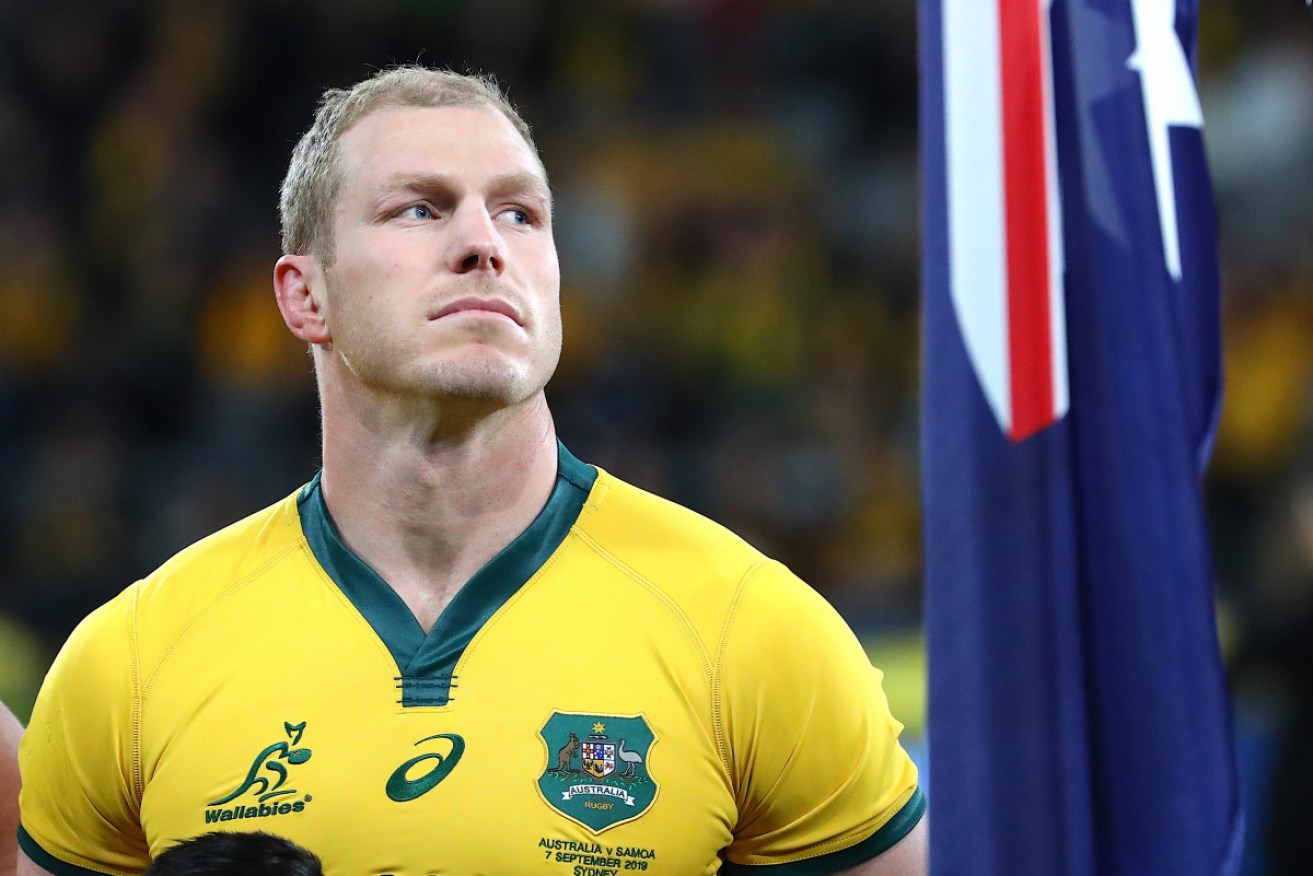Tale of two rugbys as coronavirus winners and losers become apparent


Work to do: Wallabies skipper David Pocock. Photo: AAP
It may be a stretch to say the sporting world is starting to see who are the winners and losers of the seismic changes wrought on elite competitions by the coronavirus – given at this early stage there are only degrees of losing.
Still, if one was assessing which competitions had eked out honourable losses and which had been thumped, rugby union would find itself right at the top of the bottom feeders, scrapping with the A-League as the sport in most strife going forward.
On Monday, Rugby Australia announced it would sack more than 40 per cent of staff, in a desperate attempt to stay solvent.
On the ABC’s 730 program, interim chief executive Rob Clarke said 47 full-time jobs would go, along with another 30 casuals, to reduce the organisation’s wages bill by $5.5 million.
It was an appalling admission after an equally disastrous 12 months for the sport in which it was in the headlines for all the wrong reasons.
Former CEO Raelene Castle was the first to lose her job, that move coming after an an out-of-court settlement with Israel Folau, who was dropped from the Wallabies for homophobic social media posts.
Australia’s quarter-final exit in the Rugby World Cup last year was a disappointment that was soon compounded by strife at head office, most particularly the baffling decision to walk away from a $57 million broadcasting deal with Foxtel.
That move looked like hubris even before coronavirus put the knife through sports worldwide, with hindsight offering a fork in the road moment from which the game will take years to recover.
With millions spent at head office on the elite levels of the game, union may finally be forced to confront its problem with grassroots development and find new ways to find, attract and keep talent.
At least Monday’s news resets the clock for union, with the recent experience of rugby league offering a template for making tough decisions and pushing through against the odds.
The NRL was, arguably, in an even bigger financial mess, but has cut costs, struck a less lucrative but longer-term broadcast deal and got its product back to market before its main rival – the AFL.
Always wanting to be seen as a good citizen, the AFL will begin its season on June 11, having taken a cautious approach to resuming and needing to accommodate South Australia and Western Australia complications.
Both the NRL and AFL expect to be back on top of their game once the pandemic fears ease and crowds are allowed to return, but the financial hit will still be massive and result in pared-back administration and football departments.
It’s a different story for soccer’s A-League, which might not be in as much strife as Rugby Australia, but which nonetheless finds itself out of sight out of mind and without a long-term broadcast deal.
With less than two months to go in its 2019-20 season when the lockdowns began, the A-League has had difficult player contract issues and the status of Wellington Phoenix to consider in its restart plans.
A-League teams will be back in training in two weeks and in mid-July the final seven rounds and finals will be played.
In the interim Football Federation Australia is trying to work out if it can get any cash out of Foxtel for its broadcast rights or if it should go its own way with a streaming service.
As Rugby Australia discovered, it would be a brave sporting administrator who knocked back upfront cash and promotion in these straightened times.
All of which raises questions about the other 50 per cent of the sporting landscape – the women’s competitions.
Super Netball appears to be on the right track with its plans for a full season of 60 games with eight clubs from August 1, culminating with a grand final in November.

We’re back: Shamera Sterling of the Thunderbirds calls for the ball. Photo: AAP
However, with tight budgets and lack of sponsorship throughout the sporting world expect tough times for the AFLW, W-League and NRLW as clubs cut costs and plans for expansion are put on hold.
All of which brings us back to cricket, with the huge crowd at the women’s World Cup being the last major event before the lockdown.
Australia’s women may get to bookend that triumph when they start their post-covid season by hosting New Zealand for three ODIs and three T20Is starting on September 27, with India arriving for ODIs in January.
The men will also be back in action, from August hosting Zimbabwe for a ODI series in Augst and then a T20 series against West Indies and India.
They’ll also play India and Afghanistan in Test cricket followed by ODIs against India, and New Zealand in the New Year.
No doubt for Rugby Australia, and all sports administrators, 2021 cannot come quick enough.








